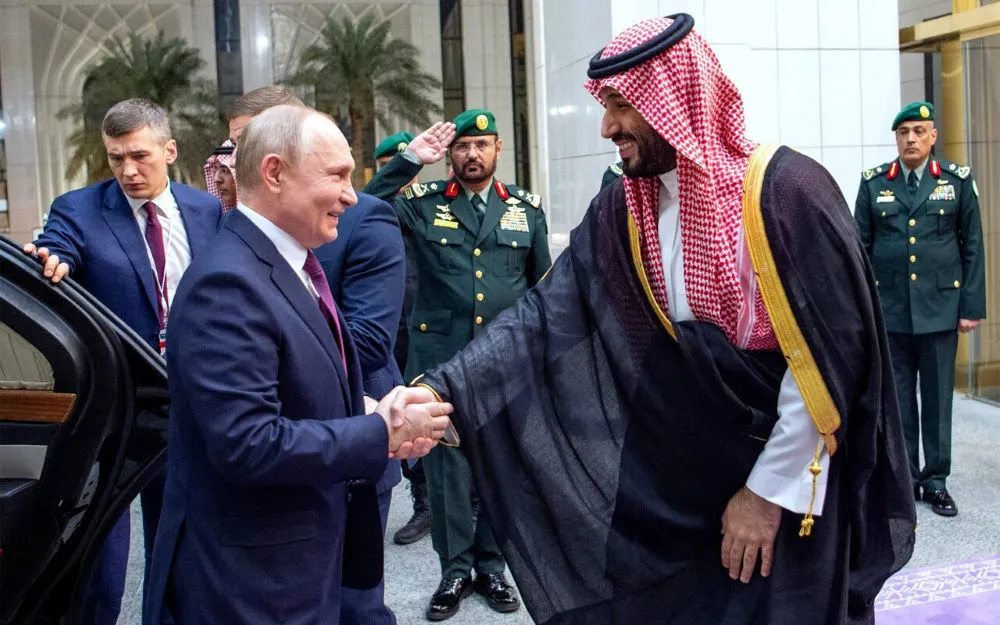Vladimir Putin's diplomatically successful strike
The trio namely Russia, UAE, and Saudi Arabia has dealt a heavy blow to the face of the West and the International Criminal Court.
It was a big surprise for the world and very bitter for the anti-Putin Western alliance that the United Arab Emirates (UEA) and Saudi Arabia welcomed Russia's President Vladimir Putin to state visits. For a relatively long time, the West has been trying their almost to politically isolate Putin because of his war against Ukraine and his seizure of Crimea. Since the breakout of the war in Ukraine and after the warrant issued by the International Criminal Court (ICC) for his arrest, President Putin went only abroad to visit China and some former Soviet republics in Central Asia. And now UEA and Saudi Arabia. All countries aren't members of the ICC. Unlike China, both UEA and Saudi Arabia maintain goodwill and cooperative relationships with the West.
| Saudi Crown Prince Mohammed bin Salman welcomes Vladimir Putin in the capital Riyadh last week. Photo: AFP |
Therefore, this trio has dealt a heavy blow to the face of the West and the ICC. They enabled Putin to gain a politically, legally, and diplomatically very important success.
For the Russian president, this Gulf visit meant he wasn't internationally isolated like the West wants and intends, implying that he is still relevant and a leader of substance on the world stage. Nowadays, because of the war in Ukraine, any gain for Russia is at the same time some loss for the West and any success for Putin is at the same time some failure for the West.
Putin could have made this breakthrough-like trip because he touched upon the nerves of the UEA and Saudi Arabia. Like many other members of the Arab world, UEA and Saudi Arabia both have growing displeasure with the US for not doing enough to stop the Gaza war and want to reshape their relations with the US under President Joe Biden, whom they considered as not receptive to them like his immediate predecessors. They use their relations with Russia as means and tools to put pressure on the US and the West.
It is always easy for them to have consensus and common understandings with Russia because all three are members of the so-called OPEC+. Their common desire is to have and maintain oil prices durably stabilized on a high level. So they have to cooperate closely and effectively with each other in reducing daily oil exports. In this aspect, they have to resist the US's demand and pressure on them to further increase daily oil exploitation and export. In these fields, these two Gulf kingdoms need and use Russia.
For now, as like as in the future, President Putin can in no way win these two Arab states as anti-Western allies. But he could deepen the rift between them and the West and prevent them from becoming the West's allies against himself and Russia.
Disclaimer: The views expressed by Ambassador Tran Duc Mau are his own and do not necessarily reflect the views of The Hanoi Times.













